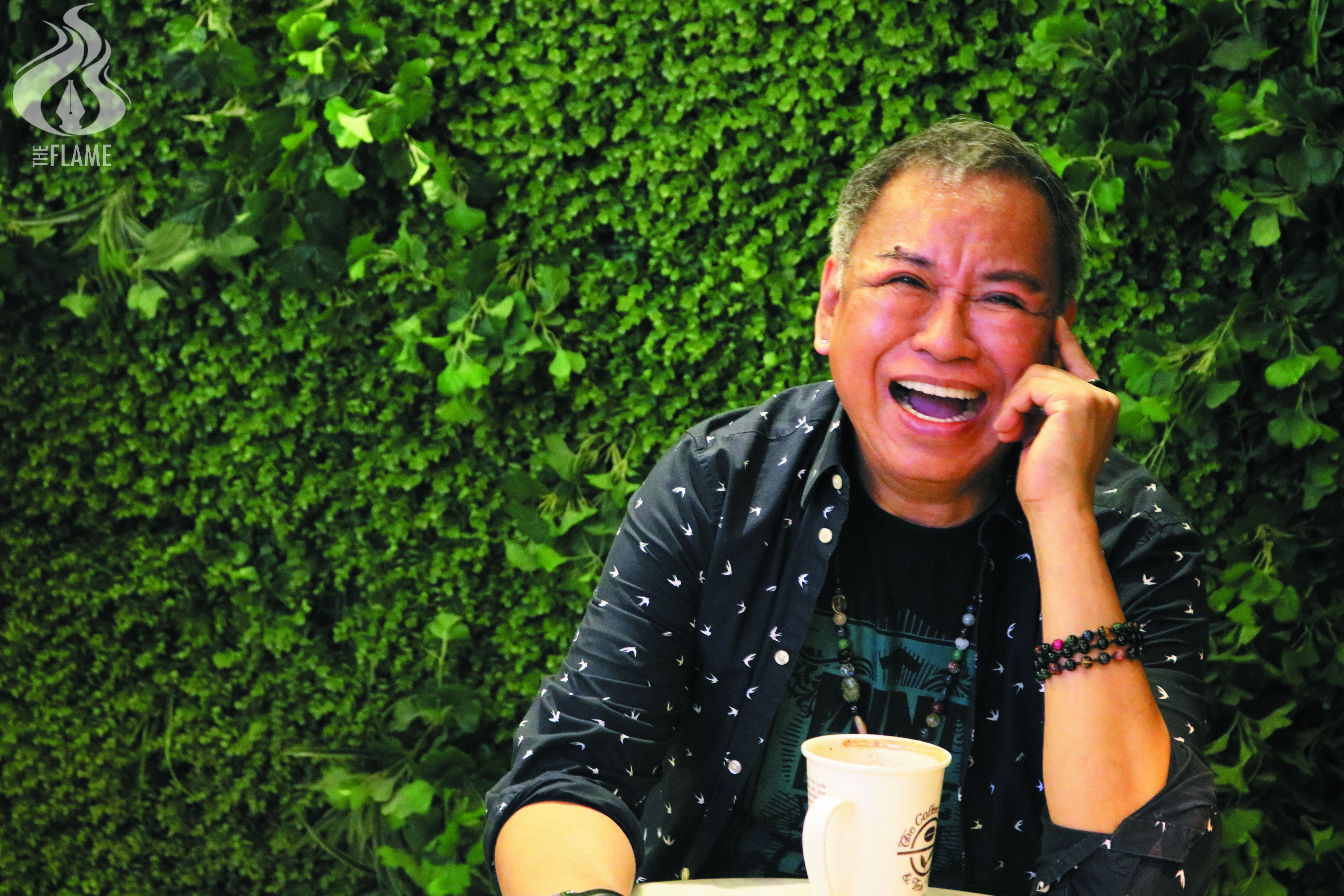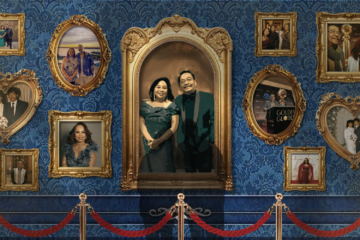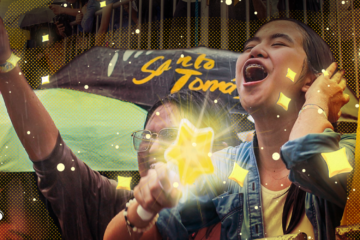
BERNARDO BERNARDO is 72 years old, but he has only just begun.
The actor has starred in various theater plays, movies, and television shows, but his most challenging role was one that he never played on-screen—that of a comedian grappling with crippling depression.
Years after he defeated his demons, Bernardo is back on track and his love for theater is stronger than it has ever been.
Made for the spotlight
Although Bernardo was a Journalism major, his heart belonged to the stage. As a member of the former University-wide theatric organization Aquinas Dramatic Guild, he would often portray fictional characters beneath the bright lights.
After he graduated in 1966, he moved to the United States to take up his master’s degree in Dramatic Arts at the University of California-Santa Barbara. His return to the Philippines four years later would mark the beginning of his long journey in the glitzy world of show business.
Showbiz was kind to the new artist when he entered the industry in 1973. One of Bernardo’s biggest roles that launched him to fame was bringing the character of Steve Carpio to life in the long-running sitcom, Home Along da Riles, where he starred alongside the late King of Comedy Dolphy Quizon.
However, after a few years, Bernardo slowly began to suffer the blows of misfortune.
“I was kicked out of the production [of Home Along da Riles] three times,” he narrates. “[It was] Dolphy [who] kept taking me back.”
Even though he was among the top billing actors of his time, he noticed that his income sank gradually while his colleagues continuously earned more.
Victimized by the brutal politics of showbiz, the actor was left helpless since he “did not belong to the inner circle [of celebrities].”
Closing the curtains
Slowly being driven to depression by his toxic work environment, Bernardo decided to return to the US, hoping that a change in sight would help him gain new perspectives in life.
“People would come to me when they have problems, and I would make them laugh, give [them] advice. Pero when I was living in the States, ako ‘yung walang support system. That’s a major thing,” he explains.
The actor sought help immediately after suspecting that he might be depressed and feeling like he was “going slightly crazy.” He later found out that he had a mild bipolar syndrome.
Bernardo was unwilling to take medication because he saw its effects on his friends who also suffered mental disorders. “’Yung ngiti nila, kakaiba. […] Kasi natanggal ‘yung symptoms, pero ‘yung sakit, hindi.”
He instead chose to go to a detoxification center, and he has been better since. Finally free from the negativity that once weighed him down, Bernardo rediscovered his love for acting and writing and reinvented himself.
A rekindling of passions
Upon his sister’s suggestion, Bernardo moved back to the Philippines to escape the racial discrimination that limited his opportunities, and to remedy the homesickness that his sister suspected to be the root of his depression.
“‘Pag may kulay ka sa Amerika, hirap ka. So eventually, sabi ng sister ko, ‘maybe the solution is for you to go home.’ I did. I followed her, and sunud-sunod naman ang blessings,” he shares.
The actor has been an unstoppable force ever since he returned, having been “working non-stop since 2014.”
He has since starred in various movies and theater plays, from the Shakespearean play Haring Lear to the film Hele sa Hiwagang Hapis directed by Lav Diaz.
A return to the stage
The actor speaks of his depression matter-of-factly, as though he looks back on it not as a period of weakness, but as an obstacle he triumphantly overcame through strength. The mental illness may have been cruel, but it taught Bernardo significant life lessons.
“You don’t wait for opportunity, I learned. You have to make opportunity. Pick yourself up from wherever you are and move. If you don’t move, nothing happens,” he encourages.
“I feel so grateful kasi at my age of 72, parang I’m a ‘come-backing’ actor at 70. That’s not easy,” Bernardo enthuses, his eyes shining.
He is thankful for the people who became his beacons of hope during his dark times, saying “it’s the support system that makes you strong. ‘Yung isang play na ginawa ko has a very important line: ‘Feelings, sensations are fleeting. It is relationships that matter.'”
He is now working on a book that would chronicle the struggles he endured and the lessons that he learned from them.
“There are certain things about the past that should be relived […] The best step to take, I think, is to merge the best of the past and the best of the present, with your eyes looking towards the future.” F – JULIA MARI T. ORNEDO with reports from KOBE ADAM JOSHUA S. LAURENA



